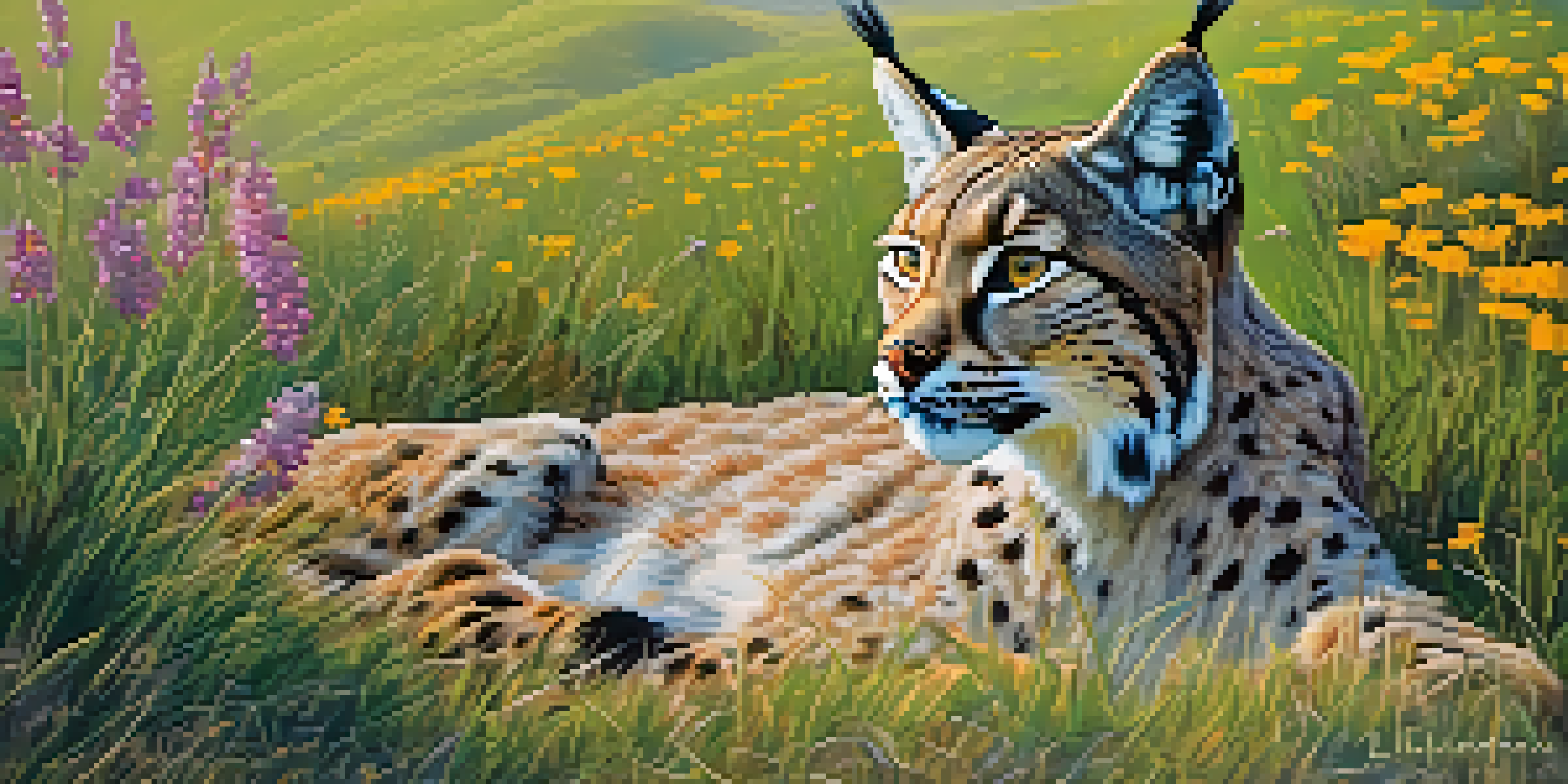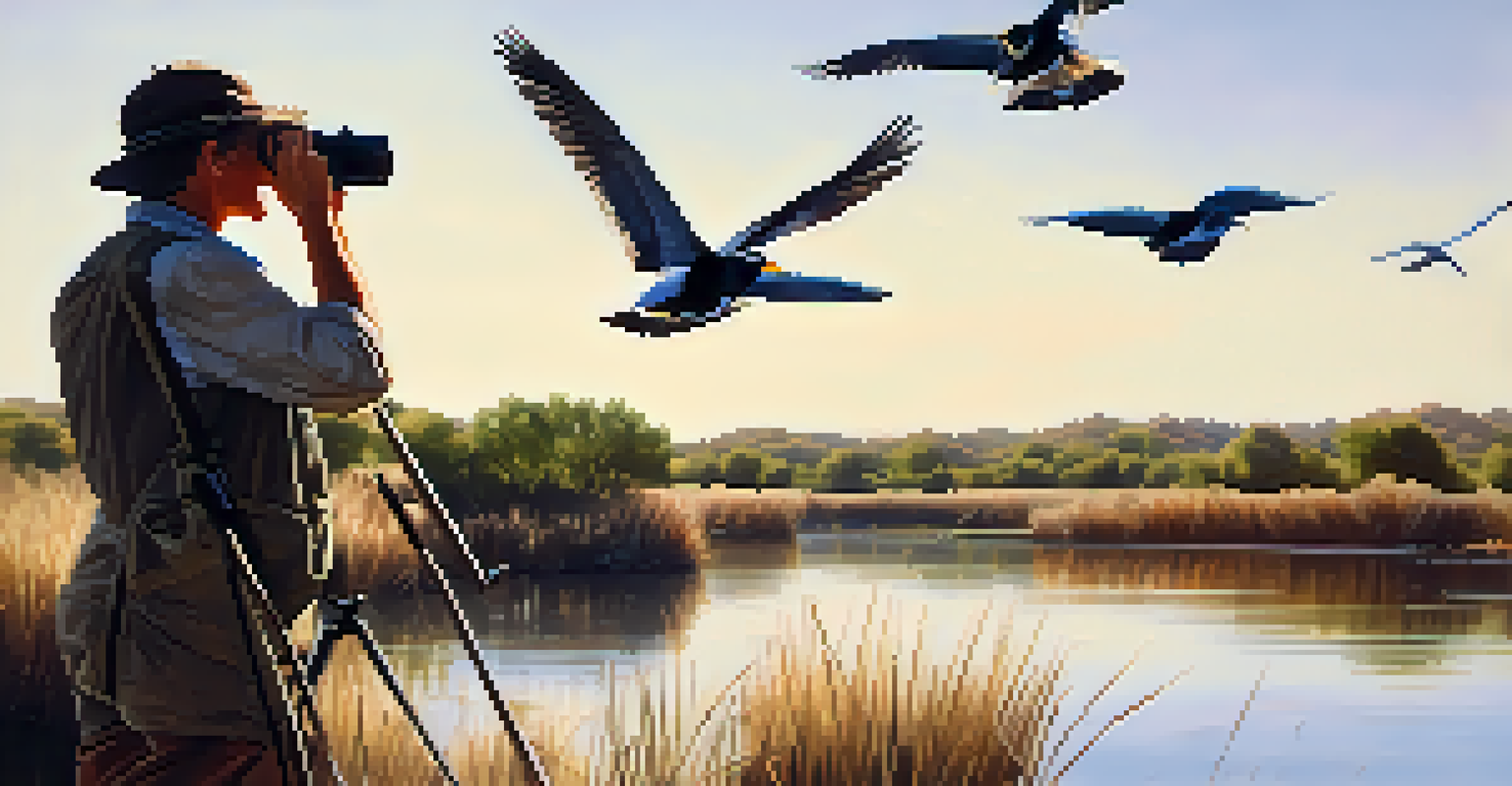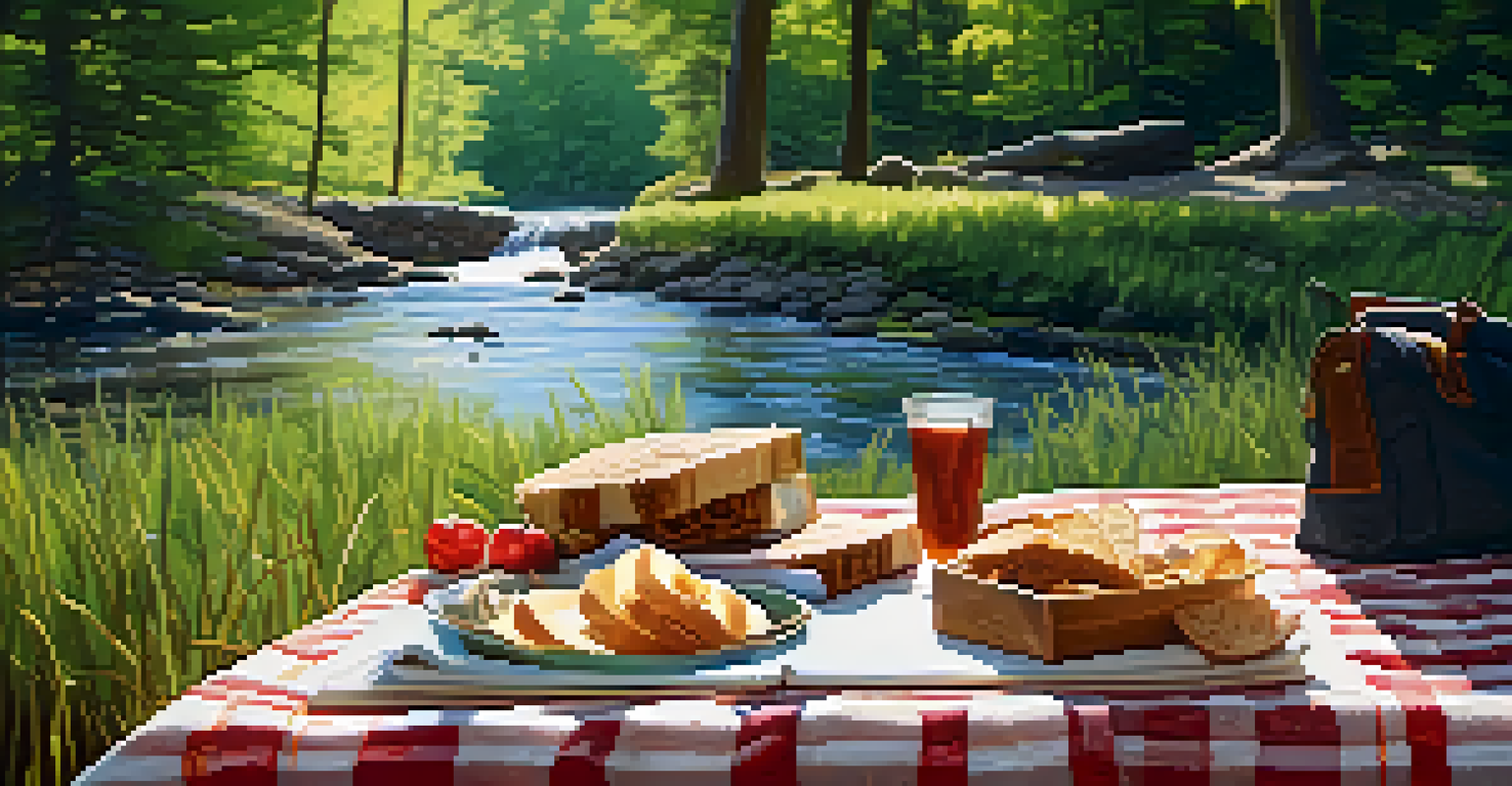How to Prepare for a Local Wildlife Tour in Spain

Choose the Right Time for Your Wildlife Tour
The timing of your wildlife tour can greatly influence your experience. Spring and early summer are often ideal, as many animals are active during these months. Additionally, migratory birds flock to Spain, making it a birdwatcher’s paradise.
In every walk with nature one receives far more than he seeks.
In contrast, visiting during the fall may give you a chance to see animals preparing for winter. Each season brings its own unique wildlife sightings, so consider what you want to see when planning your trip.
Researching the specific wildlife you hope to spot can also help you determine the best time to visit. Finding a balance between your schedule and the wildlife calendar will enhance your adventure.
Research Local Wildlife and Habitats
Before heading out, familiarize yourself with the local wildlife you may encounter in Spain. From the majestic Iberian lynx to various bird species, knowing what to expect can heighten your excitement and curiosity.

Understanding the habitats of these animals can also prepare you for the types of environments you’ll explore. For instance, wetlands are home to different species compared to mountainous regions.
Timing Enhances Wildlife Tours
Choosing the right season for your wildlife tour in Spain, such as spring or fall, can significantly impact the animals you see and the overall experience.
Consider visiting local wildlife websites or guides to get a deeper insight into the best locations for spotting specific animals. This knowledge will enrich your experience and make your wildlife tour more rewarding.
Pack the Essentials for Your Tour
Packing wisely is crucial for a successful wildlife tour. Comfortable hiking shoes, weather-appropriate clothing, and a good backpack are must-haves to keep you comfortable during your explorations.
Wildlife conservation is not just about saving animals. It's about saving ourselves.
Don’t forget essentials like binoculars for birdwatching and a camera to capture those unforgettable moments. A field guidebook can also be beneficial for identifying animals and plants you may encounter.
Lastly, remember to bring water and snacks to keep your energy up while you're out in nature. Being well-prepared will allow you to focus on enjoying the sights and sounds around you.
Understand Local Rules and Regulations
Before embarking on your wildlife tour, it's important to familiarize yourself with local rules and regulations. Many natural reserves and parks in Spain have specific guidelines to protect wildlife and their habitats.
Respecting these regulations not only helps conserve nature but also ensures your safety during the tour. For instance, staying on designated paths minimizes your impact on the environment.
Research Local Wildlife
Understanding the local wildlife and their habitats prepares you for what to expect and enriches your wildlife adventure.
Additionally, some areas may have restrictions on feeding wildlife or approaching animals too closely. Understanding these rules will help you enjoy a responsible and ethical wildlife experience.
Consider Joining a Guided Wildlife Tour
Joining a guided wildlife tour can enhance your experience significantly. Knowledgeable guides can provide valuable insights about the local fauna and flora, enriching your understanding of the ecosystem.
Guided tours often have access to prime wildlife viewing spots and know the best times to visit certain areas, increasing your chances of sightings. Plus, their expertise can help you learn more about conservation efforts.
Participating in a group tour can also be a fun way to meet fellow nature enthusiasts and share experiences. Think of it as a chance to connect with like-minded individuals while exploring the beauty of Spain’s wildlife.
Stay Safe While Enjoying Nature
Safety should always be a priority when exploring the outdoors. Familiarize yourself with basic safety tips, such as staying on marked trails and keeping a safe distance from wild animals.
It’s also wise to inform someone of your itinerary and expected return time, especially if you're venturing into remote areas. This way, someone will know where to look for you in case of an emergency.
Safety and Preparation Are Key
Being well-prepared with the right gear and knowledge of safety guidelines ensures a safe and enjoyable exploration of nature.
Lastly, carry a first-aid kit and know how to use it. Being prepared will give you peace of mind, allowing you to fully immerse yourself in the beauty of Spain’s wildlife.
Capture Your Wildlife Experience
Documenting your wildlife encounters can create lasting memories. Whether through photography, journaling, or sketching, capturing your experiences adds a personal touch to your adventure.
Consider investing in a good camera or smartphone with excellent photo capabilities. Candid shots of animals in their natural habitat can be incredibly rewarding and provide beautiful keepsakes.

Sharing your journey with friends and family can also inspire others to appreciate and conserve wildlife. Your stories and images can help raise awareness about the beauty of Spain’s natural world.
Reflect on Your Wildlife Tour Experience
After your wildlife tour, take some time to reflect on your experiences. Consider what you learned about the animals, their habitats, and the importance of conservation.
Writing down your thoughts or sharing them with others can help solidify those memories. It can also inspire you to continue exploring and advocating for wildlife in your own community.
Finally, think about how you can contribute to conservation efforts. Whether it’s volunteering, donating, or simply spreading awareness, every little bit helps in protecting the precious wildlife of Spain.